Sato Shoko’s Travel Report Local Seafood and Local Shoyu Brewers
Wild Sea Bream and Mitsuru Shoyu
Culinary expert Shoko Sato, who teaches people how to prepare delicious dishes, traveled to Fukuoka to local fish production areas and visited the soy sauce breweries recommended in those districts. Here, she visits Mitsuru Shoyu Jozo Moto (brewery) in Itoshima, where they produce their special Kinari brand, which she used to cook tai no aradaki, with wild red sea bream from Itoshima.
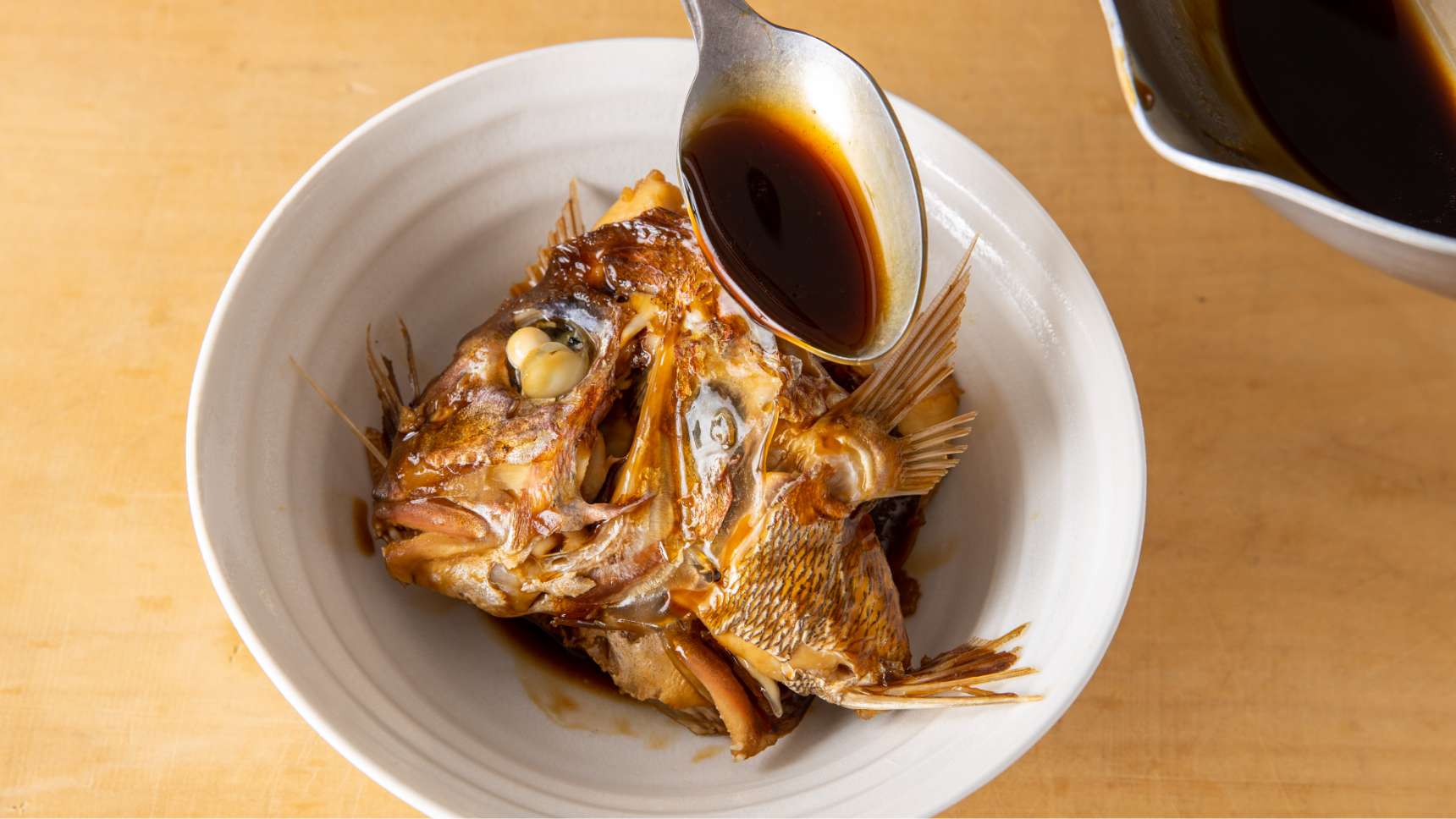
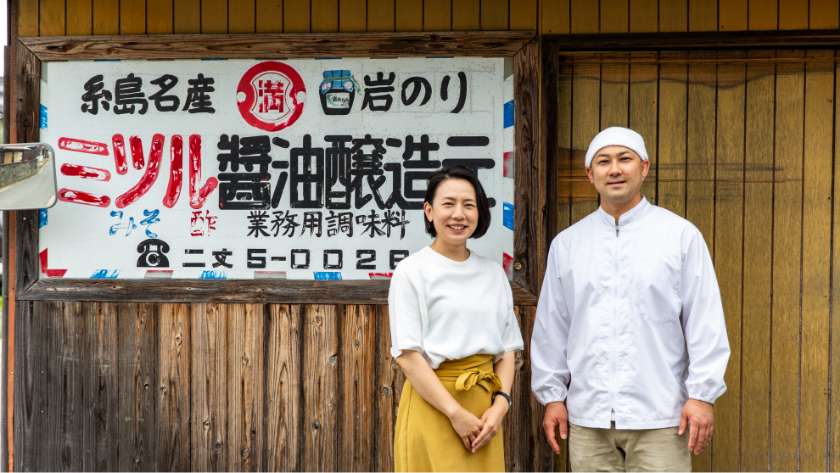
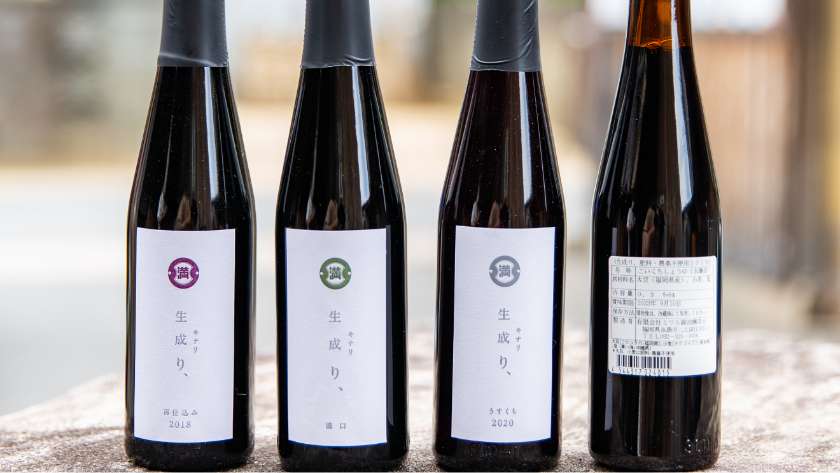
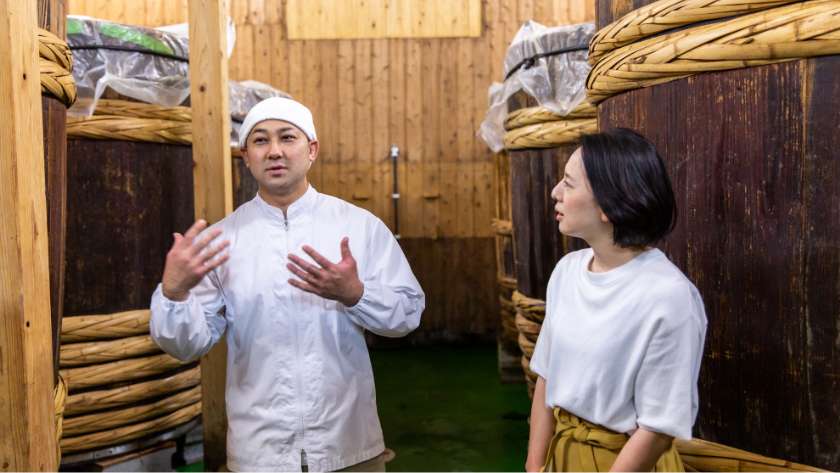
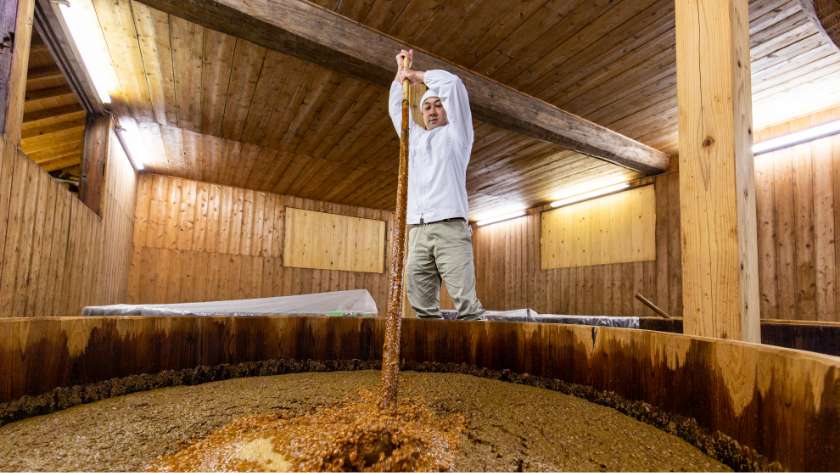

HP:http://www.mitsuru-shoyu.com/
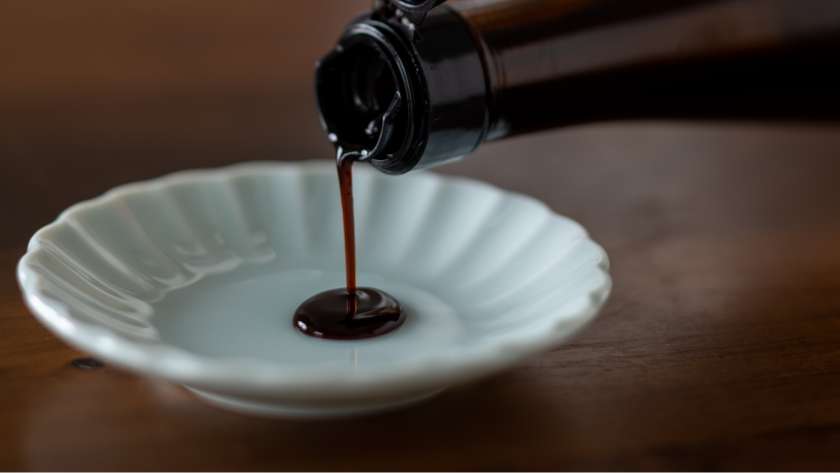
A go-to soy sauce for a quintessential dish.
Soy sauce is indispensable for fish dishes—whether cooked, grilled, or raw, as sashimi. Fukuoka Prefecture has close to 100 soy sauce makers, more than any other prefecture in Japan. Shoko Sato had the idea to try the local specialty seafood of Fukuoka with the soy sauce produced in the prefecture, so we visited a number of breweries together to explore locally brewed soy sauce and the fish dishes that go with them.
On this day, we visited Mitsuru Shoyu Jozo Moto, a brewery in Itoshima, Japan’s largest producer of sea bream. The brewery uses traditional methods to make its Kinari brand products. In an ordinary residential district, a large vintage signboard immediately catches the eye. Here, at an old-fashioned wooden building, we are welcomed by Yoshinori Joh, the fourth-generation master brewer, who shows us inside, with the space dominated by large wooden cedar vats.
In the late 1960s, Mitsuru Shoyu had ceased producing soy sauce. But as a high school student, Joh started taking an interest in brewing, and dreamed of making his own soy sauce, as his grandfather had in his time. So, he went to college and studied zymology, the science dealing with fermentation. He went to work at various breweries to gain experience. Then, at the end of 2010, with the help of many people, he finally started the brewing process. He steamed and roasted soybeans, made koji mold from crushed wheat, added salt water, and slowly started fermenting and aging the moromi mash. In the winter of 2013, Mitsuru Shoyu returned to the scene with its homemade soy sauce.
The bottle labels are all-white, except for the colored logo and product name. The additive-free Kinari soy sauce is Joh’s return to the basics. And what better dish to make with it than tai no aradaki—simmered sea bream parts—a simple classic! With no extra sweetness, the umami of the fish can be better tasted. A pure soy sauce with nothing added resets the taste buds and shows the depth of the dish itself.

Itoshima Wild Sea Bream + Mitsuru Shoyu Tai no Aradaki
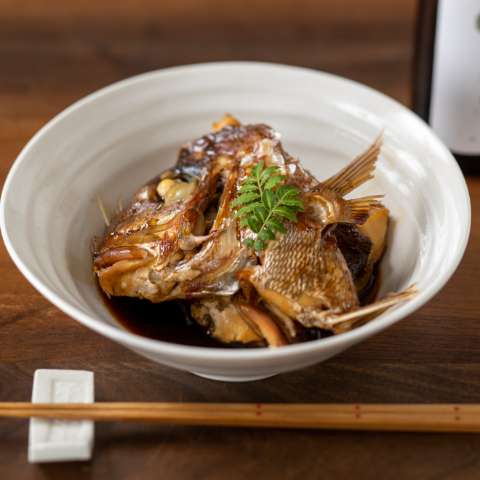
Ingredients (for two)
Sea bream ara (head and parts): 1 fish
Water: 1 cup
Sake: 1/2 cup
Sugar: 3 tablespoons
Mirin: 2 tablespoons
Dark soy sauce (Mitsuru Shoyu Kinari Koikuchi): 3 tablespoons
Kinome: 2 young pepper-tree leaves
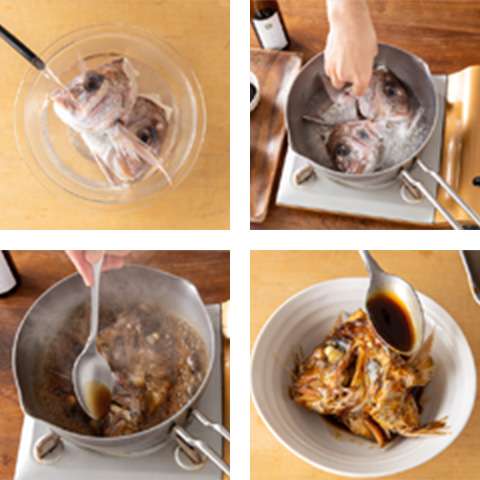
How to Prepare
1. Split the head of the sea bream in half, pour hot water over it, cool in cold water, then remove the scales and red fish meat.
2. Put water in a pot with sake, and sugar, bring to a boil, then place in the fish prepared in Step 1, cover with a drop lid, and boil on high heat for 3-4 minutes. Remove the scum/froth that rises to the top.
3. Add mirin and soy sauce, and boil on high heat for 7-8 minutes. Spoon the fish broth over the fish to bring out its luster.
4. Stack neatly on a plate, spoon the broth over it, and garnish with kinome pepper-tree leaves.




